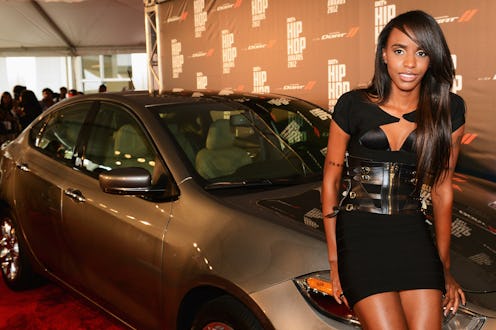Entertainment
'Same Love' Sung By an Actual LGBTQ Artist
Whether you're a Macklemore fan or not, it's hard to deny that "Same Love" is a problematic song. In terms of mainstream pop songs, it's a progressive success — having a straight, mainstream musician lend his support to the gay community is extremely influential.
But take a look at hip hop's current landscape, and it's extremely disappointing. There are so many talented LGBTQ rappers out there today that hearing a straight guy try to rap about how he understands because he thought he was gay one time, and guys, his uncle is totally gay, too... it's pretty weak sauce.
That's why it's such a relief to hear Angel Haze rap over "Same Love" and do the song justice. Unlike Macklemore, she has a real story to tell. Angel Haze identifies as bisexual, although she doesn't like to put a label on it. And in "Same Love" she tells about how her mother told her when she was 13 that she would "burn in hell, or probably die of AIDS." Haze is a rapper who's not afraid to get extremely personal — her most famous track, a remake of Eminem's "Cleaning Out My Closet," talks about her painful emotional scars from the childhood sexual abuse she suffered for several years. "Same Love" is a part of Angel Haze's "30 Gold" series, which will see the artist release 30 freestyles in 30 days, right before the release of her debut album, Dirty Gold.
Haze's "Same Love" doesn't preach as much as it protests. She doesn't have patience for those who remain stubbornly ignorant —"fuck your religion, fuck constitutions, fuck superstitions," she snarls. It's that kind of anger and passion that was missing from the original, and it illustrates why it's so important that LGBTQ voices be held up in pop music instead of spoken for. For them, it's not all reassuring mothers and themes of acceptance and Instagram filter wedding videos. In her "Same Love," Angel Haze throws her support to those who have been bullied, have been stereotyped, have had suicidal thoughts, because she's been right there with them.
The song brings the MTV Video Music Awards to mind, when "Same Love" won the award for "Best Video with a Social Message," and Macklemore got up to accept an award for representing a community that he didn't even belong to. Many on the internet vilified the artist, but clearly the rapper had good intentions, and getting even the smallest LGBTQ point of view on Top 40 radio is a pretty huge accomplishment. Angel Haze's track isn't a response to that moment, but it shows how the negative criticism can be turned into a positive motion. Instead of knocking down straight allies, we should be raising up LGBTQ artists and placing importance on their perspectives.
Yeah, "Same Love" isn't as great of a gay rights anthem as it could've been. But in making "Same Love" her own, Angel Haze has given her community the anthem they needed.
